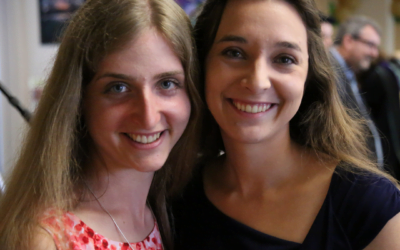As law students, paralegals, and lawyers, we are interested in “evidence.” Evidence is that which is used to prove a proposition or fact. We know that evidence must be credible (trustworthy), material (pertinent to the issues in dispute), and relevant (tends to prove or disprove an assertion of fact) for it to be useful. The evidence is not the ultimate goal, but it is the means to prove a fact or proposition that is determinative in a case. We also know that the amount of evidence needed to “prove” a fact depends on the nature of the case (criminal or civil). In criminal cases we require “beyond a reasonable doubt” and in civil cases “preponderance of the evidence” is the standard.
It is in the context of “evidence” that we can get a clear understanding of the relationship between faith and works.
The kingdom of God is a kingdom of faith. While faith may not be subject to scrutiny by our five senses, the Bible tells us that faith is real and is evidence that can be discerned. “Now faith is the substance of things hoped for, the evidence of things not seen” (Hebrews 11:1). The New Testament reports several times when Jesus and the disciples discerned or “saw” the faith of others.
And, behold, they brought to him a man sick of the palsy, lying on a bed: and Jesus seeing their faith said unto the sick of the palsy; Son, be of good cheer; thy sins be forgiven thee. (Matthew 9:2)
“Verily I say unto you, I have not found so great faith, no, not is Israel…. And Jesus said unto the centurion, ‘Go they way; and as thou has believed, so be it done unto thee” (Matthew 8:10, 13)
And there sat a certain man at Lystra, impotent in his feet, being a cripple from his mother’s womb, who never had walked: The same heard Paul speak: who steadfastly beholding him, and perceiving that he had faith to be healed, Said with a loud voice, Stand upright on thy feet. And he leaped and walked. (Acts 14: 8-10)
Not only is faith itself evidence, but faith also manifests in physical ways as proof of its existence.
And these signs shall follow them that believe; In my name shall they cast out devils; they shall speak with new tongues; They shall take up serpents; and if they drink any deadly thing, it shall not hurt them; they shall lay hands on the sick, and they shall recover. (Mark 16:17-18)
Verily, verily, I say unto you, He that believeth on me, the works that I do shall he do also; and greater works than these shall he do; because I go unto my Father. (John 14:12)
And his name through faith in his name hath made this man strong, whom ye see and know: yea, the faith which is by him hath given him this perfect soundness in the presence of you all. (Acts 3:16)
Is any among you afflicted? let him pray. Is any merry? let him sing psalms. Is any sick among you? let him call for the elders of the church; and let them pray over him, anointing him with oil in the name of the Lord: And the prayer of faith shall save the sick, and the Lord shall raise him up; and if he have committed sins, they shall be forgiven him. (James 5:13-15)
So the Scriptures tell us that faith is evidence that can be discerned and that faith manifests itself through people of faith by physical signs such as healing and the gifts of the Holy Spirit (Romans 12:3-8; I Corinthians 12:11). But faith is also evidenced in our lives another way: by good works.
Faith in Christ and our love for Him are the reasons or motivation for doing what He commanded us to do. Our spirit is not “born again” by doing good works, but we are “born again” to do good works. The Apostle Paul put it this way:
For by grace are ye saved through faith; and that not of yourselves: it is the gift of God: Not of works, lest any man should boast. For we are his workmanship, created in Christ Jesus unto good works, which God hath before ordained that we should walk in them. (Ephesians 2:8-10)
All of Jesus’ commands are summed up in His command to love God and love one another. In fact, He said that believers would be known by their love for each other. We demonstrate that love in a practical way by the good works we do.
A new commandment I give unto you, That ye love one another; as I have loved you, that ye also love one another. By this shall all men know that ye are my disciples, if ye have love one to another. (John 13:34-35)
Let us hold fast the profession of our faith without wavering; (for he is faithful that promised;) And let us consider one another to provoke unto love and to good works: Not forsaking the assembling of ourselves together, as the manner of some is; but exhorting one another: and so much the more, as ye see the day approaching. (Hebrews 10:23-25)
And whatsoever we ask, we receive of him, because we keep his commandments, and do those things that are pleasing in his sight. And this is his commandment, That we should believe on the name of his Son Jesus Christ, and love one another, as he gave us commandment. And he that keepeth his commandments dwelleth in him, and he in him. And hereby we know that he abideth in us, by the Spirit which he hath given us. (I John 3:22-24)
Our faith is the “why” we do what is good and refrain from that which is evil. “Beloved, follow not that which is evil, but that which is good. He that doeth good is of God: but he that doeth evil hath not seen God” (III John 1:11). Without faith in and knowledge of Jesus as our Savior, our religious works are iniquity in God’s eyes.
Wherefore by their fruits ye shall know them. Not every one that saith unto me, Lord, Lord, shall enter into the kingdom of heaven; but he that doeth the will of my Father which is in heaven. Many will say to me in that day, Lord, Lord, have we not prophesied in thy name? and in thy name have cast out devils? and in thy name done many wonderful works? And then will I profess unto them, I never knew you: depart from me, ye that work iniquity. (Matthew 7:20-23)
With this background it is easy to understand what James said about the relationship between faith and works. He said, “But wilt thou know, O vain man, that faith without works is dead? (James 2:20) He was challenging the believers to act upon their faith and he gave Abraham as an example. Abraham “offered Isaac his son upon the altar” because of his faith in God (James 2:21). The works we do are evidence of our faith. If we say we have faith, but do not, as John the Baptist said, “bring forth therefore fruits worthy of repentance” (Luke 3:8) we deceive ourselves and our faith is inactive or dead. That is why James said:
Even so faith, if it hath not works, is dead, being alone. Yea, a man may say, Thou hast faith, and I have works: show me thy faith without thy works, and I will show thee my faith by my works. (James 2:17-18)
As we act upon our faith by keeping the commands of Jesus, we experience a greater revelation of God and His love for us. “He that hath my commandments, and keepeth them, he it is that loveth me: and he that loveth me shall be loved of my Father, and I will love him, and will manifest myself to him” (John 14:21).
It is by grace through faith in Jesus that our spirit is born again, and it is because of our faith that we do good works. The good works do not save us, but the good works are evidence of our salvation.


